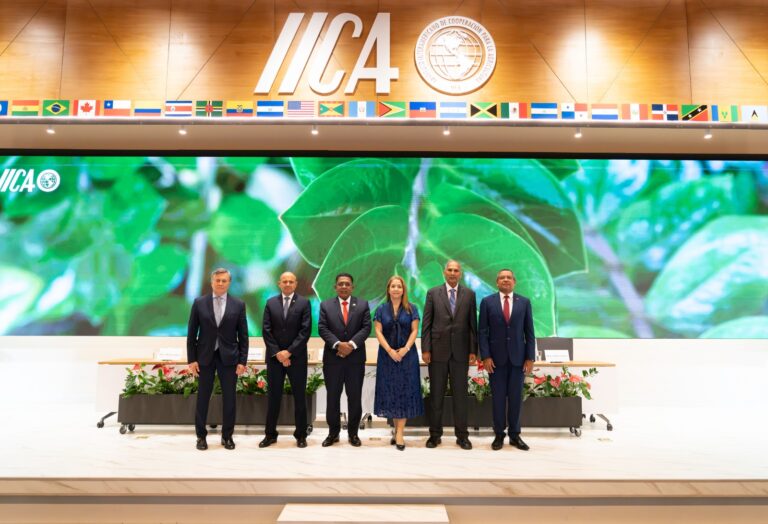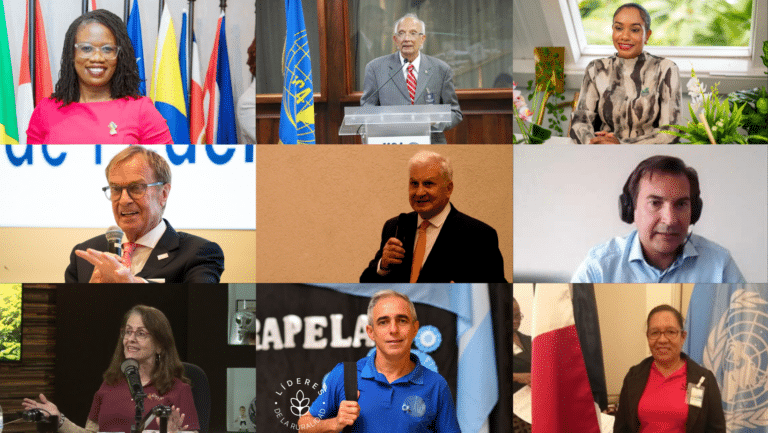The workshop was funded under the 10th European Development Fund (EDF) Sanitary and Phytosanitary Measures Project, executed by IICA.

Kingston, Jamaica, May 27 (IICA). 25 participants including personnel from the Jamaican poultry and egg industries and veterinarians, microbiologists and public health inspectors from across the Caribbean Region, participated in the recently held workshop on Salmonella surveillance and risk management on poultry and egg production and processing.
The workshop which was held in Kingston, Jamaica on May 20th and 21st, 2015 was funded under the 10th European Development Fund (EDF) Sanitary and Phytosanitary (SPS) Measures Project, being executed by the Inter-American Institute for Cooperation on Agriculture (IICA).
Salmonella is a type of bacteria that is frequently found in poultry meat, eggs and unpasteurised milk. It can cause Salmonellosis, a type of food poisoning. It is therefore a major food safety concern.
According to the Caribbean Public Health Agency (CARPHA) and the Pan American Health Organisation (PAHO/WHO), Salmonella is the most prevalent cause of food borne illness in the Caribbean. To address this issue, the Caribbean Animal Health Network (CaribVET) Veterinary Public Health Working Group in collaboration with the PAHO/WHO organised the regional workshop to develop Caribbean regional guidelines for integrated surveillance and risk management in poultry and eggs. Participants were drawn from several countries in the Region, including Dominica, Grenada, Guyana, Jamaica, Suriname and Trinidad and Tobago.
“This Salmonella workshop provides an opportunity for us to practice One Health by working together between Ministries of Health and Agriculture and the poultry producers and processors towards a common goal”, said Dr. Sandra Vokaty, Chair of the CaribVET Veterinary Public Health Working Group and Advisor, Veterinary Public Health at the PAHO/WHO.
“One Health” refers to an interdisciplinary approach to minimizing harms and maximizing benefits from the co-management of human, animal and environmental health. She further stated that “the Veterinary Public health Working Group deals with food borne and zoonotic diseases, and therefore has adopted a One Health approach to its work.”
Zoonotic diseases are diseases that people can get from animals.
In his greetings on behalf of PAHO/WHO, Dr. Kam Suan Mung, Disease Prevention and Control Advisor for PAHO, Jamaica, reminded participants of the importance of collaboration on food safety. He said that “food safety requires a multisectoral coalition that includes Ministries of Health and Agriculture, food safety regulators, food producers, processors, distributors, food markets, restaurants and hotels, and consumers.”
Highlighting recent collaborative efforts to combat food borne diseases, Ms. Shauna Brandon, Rural Development Specialist of IICA, Jamaica, stated that “over the past 12 months the SPS Measures Project has worked with key collaborators (FAO, PAHO/WHO, OIE, CaribVET and CARPHA) to execute several interventions to build capacity and coordination to strengthen animal health and food safety in the region.”
The 10th EDF SPS Measures Project seeks to assist CARIFORUM States to gain and improve market access by complying Sanitary and Phytosanitary (SPS) measures of the European Union and to develop and strengthen regionally harmonized SPS measures. The specific objective of the SPS Project is to increase production and trade in agriculture and fisheries which meet international standards while protecting plant, animal and human health and the environment.
More information:
janet.lawrence@iica.int
vokatyal@paho.org










